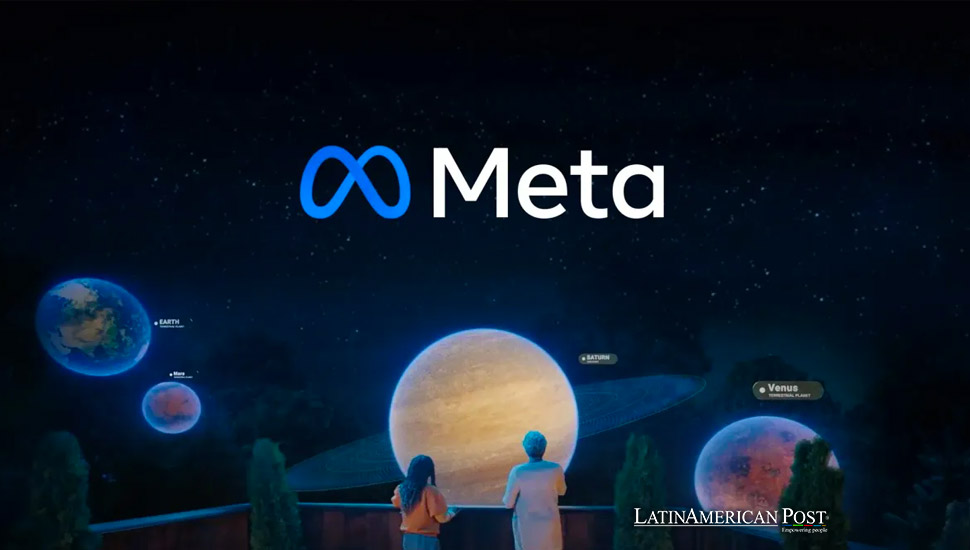Brazil Leads the Way: Pioneering Data Privacy in Meta’s AI Revolution

Brazil is setting the standard in data privacy, challenging tech giant Meta to be more transparent about how it uses personal data to train AI. This bold move positions Brazil as a leader in protecting users while embracing cutting-edge technology.
Meta Platforms, the social media giant behind Facebook, Instagram, and WhatsApp, is again at the center of a data privacy debate. This time, the focus is Brazil, the country with the second-largest user base for WhatsApp, one of Meta’s key platforms. As generative AI continues to shape the future of technology, Meta’s ambitions to integrate AI into its services have hit a significant roadblock in Brazil, where the country’s National Data Protection Authority (ANPD) has demanded greater transparency regarding the use of personal data to train these advanced AI systems.
In a world increasingly reliant on AI, the question of how personal data is used—and whether users have a say in that usage—has become a critical issue. For Meta, complying with Brazil’s data protection laws is not just about avoiding legal complications; it’s about navigating the fine line between technological innovation and respecting individual privacy.
Brazil’s Privacy Watchdog Takes on Meta
In July 2023, Brazil’s ANPD suspended Meta’s new privacy policy regarding using personal data for training generative AI systems. The suspension came after concerns were raised about how Meta intended to use Brazilian users’ data without sufficiently informing them of its plans. The ANPD’s decision to intervene marked a significant moment in the global data privacy conversation, signaling that Brazil was unwilling to allow significant tech companies to use personal data unchecked.
At the heart of the dispute is Meta’s use of data to train generative AI—an advanced form of artificial intelligence that can create new content, such as AI-generated stickers for WhatsApp, or develop language models for content moderation and user interactions. While AI offers tremendous potential to improve user experience, its reliance on personal data has raised red flags for regulators worldwide, and Brazil is no exception.
Meta initially responded by suspending its generative AI tools in Brazil, including the AI-generated stickers that had become popular on WhatsApp. The suspension was temporary, but Meta talked with the ANPD to address the regulator’s concerns. But the message was clear: Brazil’s government is willing to challenge even the biggest tech companies regarding safeguarding its citizens’ data.
The ANPD lifted the suspension months after Meta agreed to inform users how their data would be used. Starting in September 2024, Brazilians received notifications via email, Facebook, and Instagram, allowing them to reject using their data in AI training. This move highlights the growing global trend of increasing transparency and user control over personal data.
The Data-Driven Future of Social Media
Meta’s integration of AI into its platforms is no secret. The company has long been at the forefront of using AI to optimize its services, from personalized content feeds on Instagram to predictive algorithms that recommend products and services. However, generative AI represents the next frontier for Meta, and its ambitions in this area are vast.
Generative AI enables machines to create new content by learning from existing data. For Meta, this technology can potentially revolutionize everything from communication on WhatsApp to content creation on Instagram. AI-generated stickers, for instance, allow users to express themselves in new and creative ways. At the same time, AI-enhanced content moderation can help keep platforms safer by detecting harmful content faster than human moderators.
However, the effectiveness of generative AI depends on the quality and quantity of data it can access. This is where the privacy concerns come into play. For AI systems to learn and improve, they require vast amounts of data, much of which is personal and sensitive. Meta’s use of this data to train AI raises questions about whether users fully understand how their information is used and whether they have meaningful control over it.
These concerns are particularly pronounced in Brazil. As one of the largest markets for Meta, with millions of daily active users across its platforms, Brazil is a crucial testing ground for AI innovations. However, it is also a country with a growing awareness of data privacy rights, spurred by the implementation of its General Data Protection Law (LGPD) in 2020.
Brazil’s Data Privacy Law: A Growing Global Influence
The LGPD, Brazil’s equivalent to Europe’s General Data Protection Regulation (GDPR), has rapidly become one of the world’s most influential data privacy laws. It establishes clear guidelines for how companies must handle personal data, including obtaining explicit user consent and ensuring that individuals are informed about how their data will be used.
Under the LGPD, users have the right to know what data is being collected, how it is used, and for what purpose. They also have the right to revoke consent and demand that their data be deleted. This legal framework has empowered Brazilian citizens to take greater control over their digital privacy, forcing companies like Meta to rethink how they operate.
Meta’s compliance with the LGPD has been tested in light of the ANPD’s recent actions. By demanding that Meta provide clear notifications to users about using their data for AI training, Brazil has set a new standard for transparency and user consent. For many privacy advocates, this is a positive step toward ensuring that tech companies respect the rights of individuals, particularly in an era where data is increasingly seen as one of the most valuable resources.
The global significance of Brazil’s stance cannot be overstated. As more countries adopt strict data privacy regulations, tech giants like Meta will face increasing pressure to adapt their practices to meet these evolving standards. Brazil’s decision to challenge Meta’s use of data for AI is likely to inspire other nations to take similar steps, contributing to a broader movement towards greater accountability in the tech industry.
Balancing Innovation and Privacy
For Brazilian users, Meta’s agreement to disclose how their data is used for AI training marks a significant victory for privacy rights. The option to reject the use of their data gives users more control over their personal information. It ensures that they are not unknowingly contributing to the development of AI systems.
But beyond the immediate impact on privacy, this development raises broader questions about the balance between innovation and individual rights. On one hand, AI has the potential to significantly improve the way we communicate, create, and interact online. From personalized content to more efficient customer service, the possibilities are vast. On the other hand, these innovations come with risks, particularly regarding data privacy and security.
As Meta pursues its AI ambitions, it must navigate these tensions carefully. While the company has expressed its commitment to complying with Brazil’s data protection laws, balancing user privacy with the need for data-driven innovation will become more complex as AI technologies evolve.
The critical question for users is whether they can trust Meta—and other tech companies—to use their data responsibly. The fact that users in Brazil now can opt out of data collection for AI training is a step in the right direction, but it remains to be seen how this policy will be implemented in practice. Will users fully understand the implications of their choices? And will Meta ensure that those who opt out are not penalized or disadvantaged in any way?
A Defining Moment for Tech and Privacy
Meta’s decision to inform Brazilians about how their data will be used to train AI marks a critical moment in the global debate over data privacy. As AI becomes more integrated into our digital lives, the question of how personal data is used—and who gets to control that data—will continue to be a defining issue for tech companies and regulators alike.
Brazil’s ANPD has shown it is willing to challenge even the most prominent tech giants to defend its citizens’ privacy rights. By forcing Meta to be more transparent and allowing users to opt-out, Brazil is setting a precedent that could have far-reaching implications for the future of data privacy in Latin America and beyond.
For Meta, this is just the beginning. As it continues to expand its AI capabilities, the company will need to navigate a complex and evolving landscape of privacy regulations, user expectations, and technological innovation. Whether it can successfully balance these competing demands will determine its future in Brazil and globally.
Also read: Latin American Oil Giants Among Top Global CO2 Emitters
Ultimately, the tension between innovation and privacy will not go away anytime soon. As AI reshapes how we live and interact online, the need for clear and enforceable privacy protections will only become more urgent. In Brazil, Meta’s experience serves as a reminder that tech companies must do more than innovate—they must also earn the trust of the people whose data powers their platforms.





